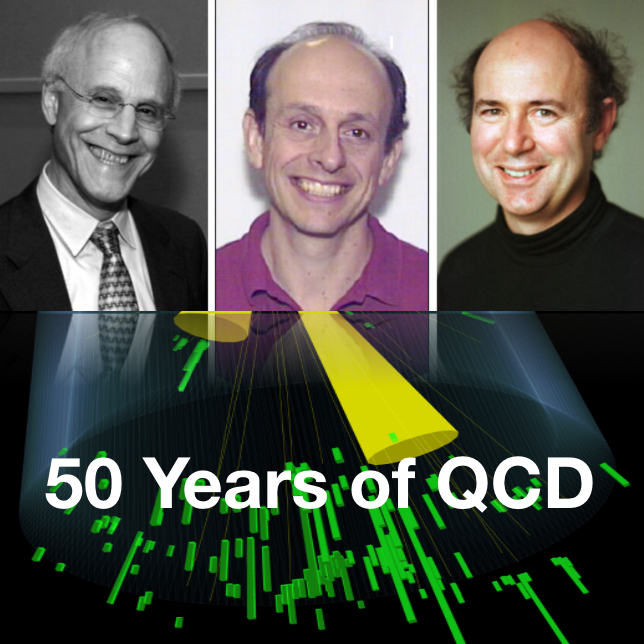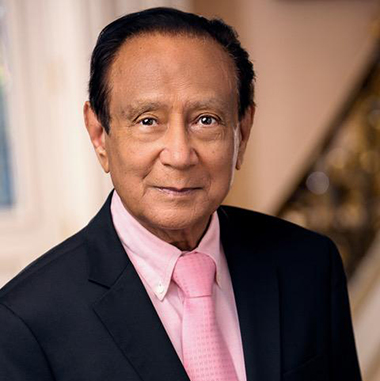50 Years of Quantum Chromodynamics
September 11-15, 2023
Organizing Committee: Michalis Bachtis (UCLA), Aida El-Khadra (UIUC), Zhongbo Kang (UCLA, Chair), Igor Klebanov (Princeton), George Sterman (Stony Brook), Iain Stewart (MIT), and Zvi Bern (UCLA).
Quantum Chromodynamics (QCD) is one of the pillars of the Standard Model of particle physics. It describes the strong interaction - one of the four fundamental forces of nature. This force holds quarks and gluons - collectively known as partons - together in hadrons such as the proton, and protons and neutrons together in atomic nuclei. QCD was developed and defined over a brief period from 1972 - 73. One hallmark of QCD is asymptotic freedom, which states that the strong force between quarks and gluons decreases with increasing energy. The asymptotic freedom of strong interactions was discovered in 1973 by David Gross, Frank Wilczek, and David Politzer, who shared the Nobel Prize in physics in 2004. The year 2023 is the opportune time to celebrate 50 years of remarkable progress and achievements in the field of QCD and to provide guidance for the community effort for years to come.
To celebrate this, we are planning a five-day conference to be held at UCLA during September 11 - 15, 2023. This conference will provide a broad overview of the past and future of QCD, including its impact on and connection to other fields.
Please contact Zvi Bern (bern@physics.ucla.edu) or Zhongbo Kang (zkang@ucla.edu) for further information.
QCD Meets Gravity 2022
QCD Meets Gravity 2022 will be held Dec 12-16 in Zurich
Mani-Fest 2022: Directions in Theoretical Physics
June 12-14, 2022
Organizer: Zvi Bern, Eric D'Hoker, Enrico Herrmann, and Per Kraus.
This conference celebrates the 5th year of the Mani L. Bhaumik Institute for Theoretical Physics, as well as Dr. Mani L. Bhaumik's 90th birthday. (This conference is more than a year late due to the pandemic.) The workshop will include topics on basic issues in quantum field theory, string theory, black holes and gravitational waves and other topics. Speakers include Nima Arkani-Hamed, Barry Barish, Steven Chu, David Gross, Juan Maldacena, Eva Silverstein, Caludio Pelegrini, Lenny Susskind, and three young UCLA professors to represent current and future work at the Bhaumik Institute.
In 2016 Dr. Mani L. Bhaumik pledged the largest gift ever to the Department of Physics and Astronomy to create a world-class Institute for Theoretical Physics at UCLA. The Institute provides an outstanding research environment for our students and postdocs, and helps UCLA hire top-ranked new faculty. Prior to his distinguished career as a laser physicist, Dr. Bhaumik's love of theoretical physics began as a student in India where he learned about Kaluza-Klein theories from S. N. Bose (of Bose-Einstein fame), initiating his passion for deep questions in theoretical physics, especially as related to quantum field theory.
This conference will end with overview talks that kick off a specialized workshop on the theoretical interpretation of recent exciting results from the ongoing Fermilab Muon g-2 Collaboration, hinting at new physics beyond the Standard Model. The talks will be colloquium-style and suitable for a broad audience.
Please contact Zvi Bern (bern@physics.ucla.edu) for further information.
SchwingerFest2022: g-2

June 14-17, 2022
Organizers: Zvi Bern (UCLA), Tom Blum (Chair, Storrs), Gilberto Colangelo (U. of Bern), Lance Dixon (SLAC), Aida El-Khadra (Illinois), Enrico Herrmann (UCLA), and Dominik Stoeckinger (Dresden)
Conference Website
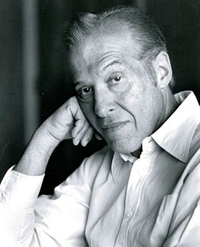 The Mani L. Bhaumik Institute and the Julian Schwinger Foundation will be hosting a workshop on the latest developments on the anomalous magnetic moment of the muon. Julian Schwinger, who spent 20 years at UCLA, was the first to calculate the anomalous magnetic moment of the electron in quantum electrodynamics. Today, high precision measurements of the anomalous magnetic moment of the muon from the Fermilab g-2 experiment and the earlier Brookhaven one point to physics beyond the Standard Model at the level of 4 sigma, with much greater improvement on the horizon. To properly assess the significance of the experimental results, tensions in the theoretical evaluation of the hadronic contributions need to first be resolved. In order to fully interpret the current and upcoming experimental results, it is essential to improve the theoretical uncertainty in difficult to compute hadronic contributions to the anomalous magnetic moment. The primary purpose of this workshop is to bring together leading experts to assess the situation, resolve tensions between different theoretical calculations in lattice gauge theory and dispersive approaches, and to identify paths towards new breakthroughs. The latest developments on possible beyond the Standard Model explanations will also be discussed. The first few overview talks, suitable for a broad audience, will also be part of the final talks at Mani-Fest, which is a separate conference celebrating the first five years of the Mani L. Bhaumik Institute for Theoretical Physics at UCLA, as well as Mani L. Bhaumik's 90th birthday. Registration is by invitation only.
The Mani L. Bhaumik Institute and the Julian Schwinger Foundation will be hosting a workshop on the latest developments on the anomalous magnetic moment of the muon. Julian Schwinger, who spent 20 years at UCLA, was the first to calculate the anomalous magnetic moment of the electron in quantum electrodynamics. Today, high precision measurements of the anomalous magnetic moment of the muon from the Fermilab g-2 experiment and the earlier Brookhaven one point to physics beyond the Standard Model at the level of 4 sigma, with much greater improvement on the horizon. To properly assess the significance of the experimental results, tensions in the theoretical evaluation of the hadronic contributions need to first be resolved. In order to fully interpret the current and upcoming experimental results, it is essential to improve the theoretical uncertainty in difficult to compute hadronic contributions to the anomalous magnetic moment. The primary purpose of this workshop is to bring together leading experts to assess the situation, resolve tensions between different theoretical calculations in lattice gauge theory and dispersive approaches, and to identify paths towards new breakthroughs. The latest developments on possible beyond the Standard Model explanations will also be discussed. The first few overview talks, suitable for a broad audience, will also be part of the final talks at Mani-Fest, which is a separate conference celebrating the first five years of the Mani L. Bhaumik Institute for Theoretical Physics at UCLA, as well as Mani L. Bhaumik's 90th birthday. Registration is by invitation only.
Please contact Tom Blum thomas.blum@uconn.edu for further information.
QCD Meets Gravity 2021
December 13-17, 2021
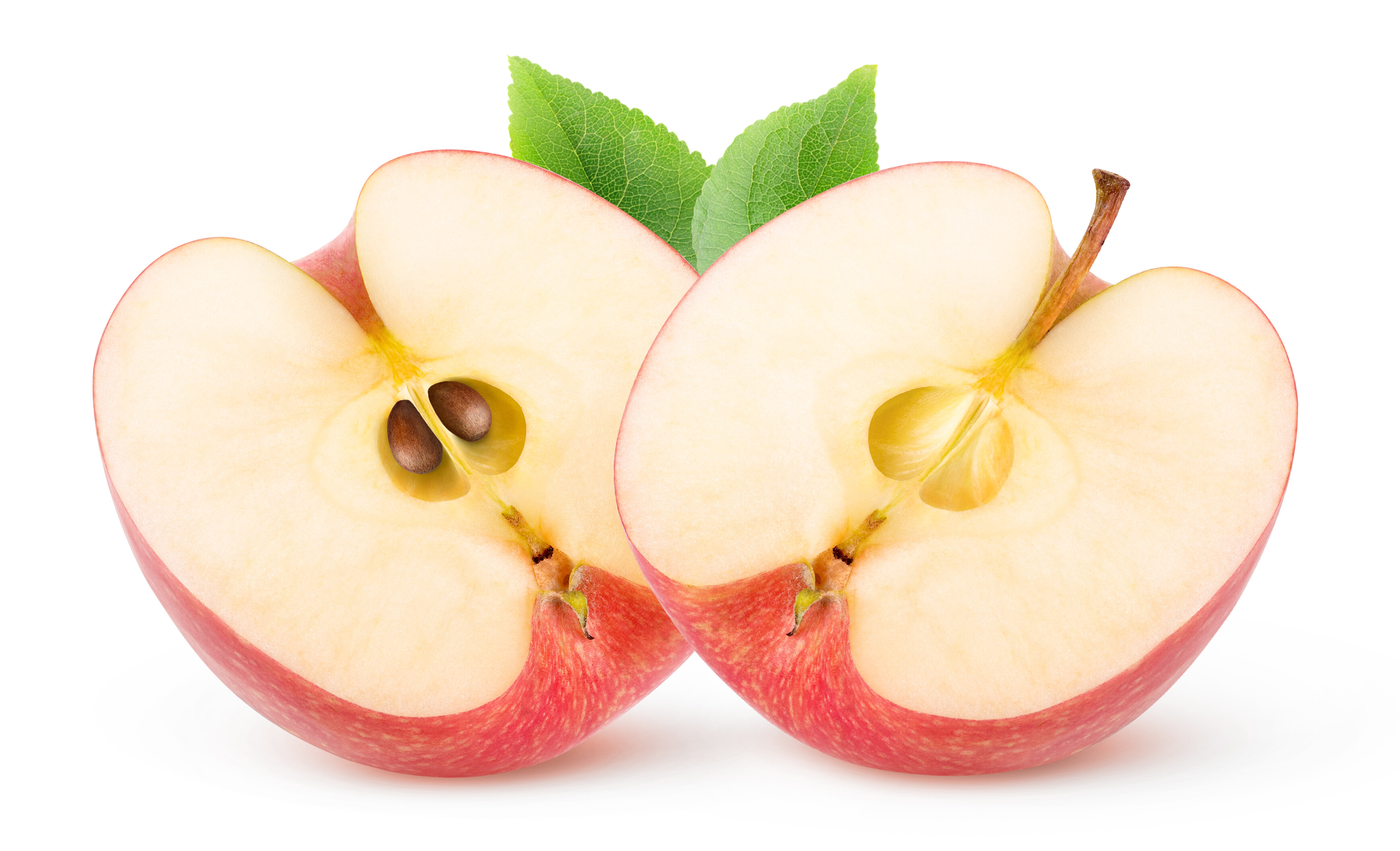 This is the 7th in a series of meetings for researchers interested in the remarkable correspondence between Yang-Mills theory and gravity, known as the double-copy construction. Due to the continuing pandemic the meeting will be on line, following a similar format as used last year. The meeting brings together experts in both gauge and gravity theories including supersymmetric extensions and focuses on bringing the methodologies developed for gauge theories to handle problems in gravity. An early manifestation of this is the KLT relations. The BCJ double-copy construction has greatly simplified multiloop perturbative computations in gravity theories, leading to new insight into the ultraviolet properties of gravity theories. Currently, there is an intense global research activity to understand the origin of the relationship as well as to apply it to more general classical solutions in General Relativity, including the important problem of gravitational radiation from compact astrophysical objects. This year significant component will be devoted to discussing recent developments on gravitational EFTs that arise from unitarity and positivity. Registration will not be necessary since everything will be available via zoom.
This is the 7th in a series of meetings for researchers interested in the remarkable correspondence between Yang-Mills theory and gravity, known as the double-copy construction. Due to the continuing pandemic the meeting will be on line, following a similar format as used last year. The meeting brings together experts in both gauge and gravity theories including supersymmetric extensions and focuses on bringing the methodologies developed for gauge theories to handle problems in gravity. An early manifestation of this is the KLT relations. The BCJ double-copy construction has greatly simplified multiloop perturbative computations in gravity theories, leading to new insight into the ultraviolet properties of gravity theories. Currently, there is an intense global research activity to understand the origin of the relationship as well as to apply it to more general classical solutions in General Relativity, including the important problem of gravitational radiation from compact astrophysical objects. This year significant component will be devoted to discussing recent developments on gravitational EFTs that arise from unitarity and positivity. Registration will not be necessary since everything will be available via zoom.
Organizers: Zvi Bern, Enrico Herrmann, Julio Parra-Martinez, Mikhail Solon, and Sasha Zhiboedov
Please click here for the workshop website.
Previous workshops in this series are:
- QCD Meets Gravity I, Higgs Centre, Edinburgh, April 2016.
- QCD Meets Gravity II, Bhaumik Institute, UCLA, December 2016.
- QCD Meets Gravity III, Bhaumik Institute, UCLA, December 2017.
- QCD Meets Gravity IV, Nordita, December 2018.
- QCD Meets Gravity V, Bhaumik Institute, December 2019.
- QCD Meets Gravity VI, Northwestern, December 2020.
Past Conferences:
QCD Evolution Workshop 2021
May 10-14, 2021
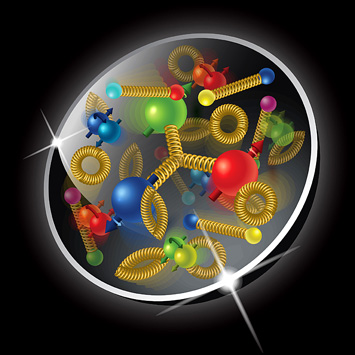 A main objective of QCD Evolution Workshop is to provide a forum to discuss the recent scientific accomplishments in areas such as Transverse Momentum Distributions (TMDs), Generalized Parton Distributions (GPDs), and small-x physics, together with advances in perturbative and non-perturbative techniques within Quantum Chromodynamics (QCD), such as lattice QCD and effective field theory techniques.
A main objective of QCD Evolution Workshop is to provide a forum to discuss the recent scientific accomplishments in areas such as Transverse Momentum Distributions (TMDs), Generalized Parton Distributions (GPDs), and small-x physics, together with advances in perturbative and non-perturbative techniques within Quantum Chromodynamics (QCD), such as lattice QCD and effective field theory techniques.
Please click here for the workshop website.
California Amplitudes Meeting 2021
March 24-25, 2021
We are hosting the virtual California Amplitudes meeting on March 24/25 2021. For those of you who have not participated in CAmplitudes in the past, it is a very informal annual meeting of people in California that work on scattering amplitudes and related topics.
This year we are opening the meeting to a slightly wider audience and perhaps there will be around 40 participants in total.
We will have a couple of longer talks by non-CA speakers, several shorter talks by locals, and plenty of time for discussions.
A preliminary schedule and further information can be found on the website (https://sites.google.com/g.ucla.edu/camplitudes2021) which we will update with more information closer to the date of the workshop.
We hope to see many of you in March.
QCD Meets Gravity Workshop 2019
December 9-13, 2019
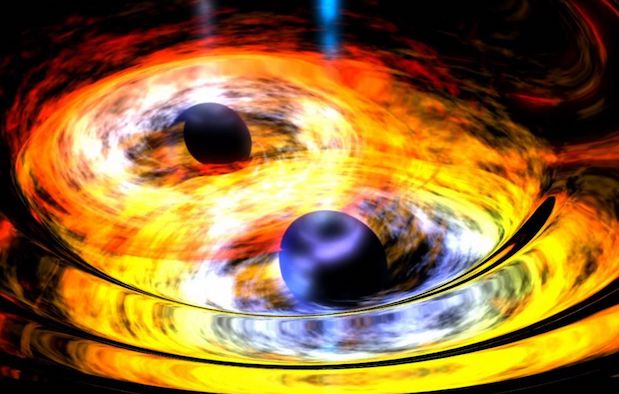 This is the fifth in a series of meetings for researchers interested in the remarkable correspondence between Yang-Mills theory and gravity, known as the double-copy construction. An early manifestation of this is the KLT relations. The BCJ double-copy construction has greatly simplified multiloop perturbative computations in gravity theories, leading to new insight into the ultraviolet properties of gravity theories. Currently there is an intense global research activity to understand the origin of the relation as well as to apply it to more general classical solutions in General Relativity, including the important problem of gravitational radiation from compact astrophysical objects. This meeting brings together experts in both gauge and gravity theories including supersymmetric extensions, and focus bringing the methodologies developed for gauge theories to handle problems in gravity.
This is the fifth in a series of meetings for researchers interested in the remarkable correspondence between Yang-Mills theory and gravity, known as the double-copy construction. An early manifestation of this is the KLT relations. The BCJ double-copy construction has greatly simplified multiloop perturbative computations in gravity theories, leading to new insight into the ultraviolet properties of gravity theories. Currently there is an intense global research activity to understand the origin of the relation as well as to apply it to more general classical solutions in General Relativity, including the important problem of gravitational radiation from compact astrophysical objects. This meeting brings together experts in both gauge and gravity theories including supersymmetric extensions, and focus bringing the methodologies developed for gauge theories to handle problems in gravity.
For more information regarding the workshop, please click here.
Previous workshops in this series were:
- QCD Meets Gravity I, Higgs Centre, Edinburgh, April 2016.
- QCD Meets Gravity II, Bhaumik Institute, UCLA, December 2016.
- QCD Meets Gravity III, Bhaumik Institute, UCLA, December 2017.
- QCD Meets Gravity IV, Nordita, December 2018.
QCD Evolution Workshop 2020
Apr 27 - May 1, 2020 *Rescheduled*
 A main objective of QCD Evolution Workshop is to provide a forum to discuss the recent scientific accomplishments in areas such as Transverse Momentum Distributions (TMDs), Generalized Parton Distributions (GPDs), and small-x physics, together with advances in perturbative and non-perturbative techniques within Quantum Chromodynamics (QCD), such as lattice QCD and effective field theory techniques.
A main objective of QCD Evolution Workshop is to provide a forum to discuss the recent scientific accomplishments in areas such as Transverse Momentum Distributions (TMDs), Generalized Parton Distributions (GPDs), and small-x physics, together with advances in perturbative and non-perturbative techniques within Quantum Chromodynamics (QCD), such as lattice QCD and effective field theory techniques.
Please click here for the workshop website.
Sudipfest 2019
April 4-6, 2019 at the UCLA Luskin Conference Center, Optimist Room
Organizers: Zvi Bern (UCLA), Stuart Brown (UCLA), Joseph Rudnick (UCLA)
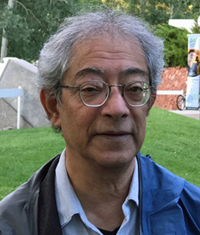 Sudip ChakravartyThis three-day workshop will celebrate the career of Distinguished Professor Sudip Chakravarty, UCLA Physics & Astronomy.
Sudip ChakravartyThis three-day workshop will celebrate the career of Distinguished Professor Sudip Chakravarty, UCLA Physics & Astronomy.
Professor Chakravarty's research interest involves quantum theory of collective behavior of electronic systems. He is interested in theories of high temperature superconductivity, dissipative quantum systems, quantum phase transition and criticality, localization transition in interacting systems, and the concept of von Neumann entropy in quantum phase transitions. He is currently actively interested in competing electronic states in high temperature superconductors, in particular in understanding the surprising magnetic quantum oscillations discovered recently in these superconductors.
His past accomplishments include theories of quantum phase transition in double well and arrays of Josephson junction systems coupled to a dissipative bath, criticality of Ising spin glass through high-order series expansion, path-integral analysis of electronic weak localization in disordered electrons, quantum magnetism and criticality in Heisenberg magnets in relation to high temperature superconductors, electron-electron interaction based mechanism of superconductivity in doped fullerenes, frustrated kinetic energy driven superconductivity in multilayered high temperature superconductors, and the proposal of the hidden d-density wave order as an explanation of the enigmatic pseudogap phase in high temperature superconductors, which he is still vigorously pursuing.
Please click here for the workshop website.
UCLA 2019 Santa Fe Jets and Heavy Flavor Workshop
January 28-30, 2019, 8:30am-5:30pm, UCLA IDRE Portal, Room 5628 Math Sciences Building
Organizers: Huan Huang, Zhongbo Kang (Chair), Christopher Lee, Cesar da Silva, Ivan Vitev
This workshop, to be held at the UCLA IDRE Portal in the Math Sciences Building, will bring together senior researchers, postdoctoral fellows and talented graduate students to discuss the exciting recent developments and future directions in high energy and nuclear science. The purpose of the 2019 Santa Fe Jets and Heavy Flavor workshop is to summarize the accomplishments and provide guidance for the community effort in the areas of hadronic jets, jet substructure, quarkonia and open heavy flavor, with emphasis on perturbative Quantum Chromodynamics (pQCD) and Soft Collinear Effective Theory (SCET).
Please click here for details.
SchwingerFest2018: g-2
December 3rd - 5th, 2018
UCLA Physics & Astronomy Department
Organizers: Zvi Bern (UCLA), Thomas Blum (UConn), Lance Dixon (SLAC), William Marciano (Brookhaven)
 2018 is Julian Schwinger's Centennial. To help celebrate Julian Schwinger's legacy, the Mani L. Bhaumik Institute and the Julian Schwinger Foundation will be holding a workshop on the latest developments on the anomalous magnetic moment of leptons, especially the muon. A long-standing 3 sigma discrepancy between theory and experiment points towards new physics beyond the Standard Model. Is it real? This workshop is particularly timely given the ongoing Fermilab muon g-2 experiment, which will reach unprecedented precision. In order to fully interpret the upcoming experimental results, it is essential to improve the theoretical uncertainty in difficult to compute hadronic contributions, especially to the light-by-light contribution. Recent progress in lattice gauge theory calculations suggests that it is possible to achieve this. The primary purpose of this workshop is to bring together leading experts to assess the situation and to identify paths towards new breakthroughs.
2018 is Julian Schwinger's Centennial. To help celebrate Julian Schwinger's legacy, the Mani L. Bhaumik Institute and the Julian Schwinger Foundation will be holding a workshop on the latest developments on the anomalous magnetic moment of leptons, especially the muon. A long-standing 3 sigma discrepancy between theory and experiment points towards new physics beyond the Standard Model. Is it real? This workshop is particularly timely given the ongoing Fermilab muon g-2 experiment, which will reach unprecedented precision. In order to fully interpret the upcoming experimental results, it is essential to improve the theoretical uncertainty in difficult to compute hadronic contributions, especially to the light-by-light contribution. Recent progress in lattice gauge theory calculations suggests that it is possible to achieve this. The primary purpose of this workshop is to bring together leading experts to assess the situation and to identify paths towards new breakthroughs.
Please click here for details of SchwingerFest 2018.
Frontiers of Neurophysics, an exploration of the interface of physics and neuroscience
September 27th and 28th, 2018
UCLA Physics & Astronomy Department
Organizer: Alex Levine (UCLA)
This workshop, hosted by the Bhaumik Institute of Theoretical Physics and the UCLA Center for Biological Physics, explores the emerging connections between physics and neuroscience as part of the UCLA Julian Schwinger Centennial Celebration. Topics include:
- Information theory and neural encoding of sensory data
- The application of the theory of nonlinear dynamical systems to neural networks
- The statistical physics of nonlinear actors on quenched random networks
Please click here for details.

